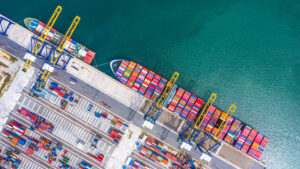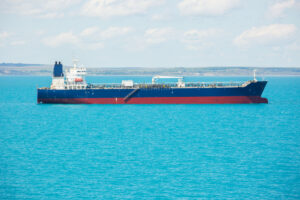
Furetank´s CEO Lars Höglund, representing the Swedish family-owned shipping company which is active in tanker shipping, was invited to the Swedish parliament to emphasize the importance of Swedish shipping in times of crisis.
Together with the Swedish shipowners’ Association and unions he demanded political action to invigorate an industry which is internationally disfavoured by national legislation.
The Swedish Shipowners’ Association, Seko sjöfolk and Sjöbefälsföreningen arranged the parliament presentation to inform members of Parliament on the challenges in maintaining a vital Swedish shipping industry.
“Our country is situated on a peninsula and shipping is absolutely vital for Swedish trade and the upkeep of our society. With a small merchant fleet, Sweden we need to take measures to safeguard the most vital transports to and from our country. Today our high dependecy on others makes us sensitive to disruption in times of international crisis or war”, says Anders Hermansson, CEO of Svensk Sjöfart.
Food and energy supply threatened
Swedish legislation when it comes to tonnage tax, registration fees and terms for on-board staffing differ from similar European shipping nations. This has led to such a low percentage of Swedish-registered ships that in the event of a crisis, the national supply of food, energy and other vital raw materials is threatened, according to the Minister of Infrastructure Andreas Carlsson.
Lars Höglund was invited to present the case of Furetank as a proactive Swedish player, navigating in a global business landscape. Furetank is one out of 18 Swedish shipping companies who have signed agreements with the ministry of Defense to ensure transport capacity and preparedness for the coming four years.
Time for political action
He backed up the need for political reforms by citing a report from the Swedish Maritime Competence Centre Lighthouse, stating that “Sweden’s ability to support itself in times of crisis is threatened, the industry competence is declining and the worth of billions is being lost.”
“We are now hoping for positive results from the ongoing public enquiry to improve the competitiveness of Swedish shipping and strengthen national resilience. Also, we wanted to show that Swedish legislation trails behind the development of environmental technology which will keep us relevant in the global competition going forward. We have progressed our ship technology to the cutting edge, now is the time for politicians to act from their side”, says Lars Höglund.


